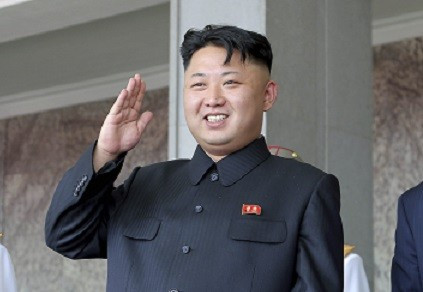North Korea's Kim is Purging 'Grumpy Old Men'

Does the execution of Jang Song-thaek, the uncle of North Korea's supreme leader Kim Jong-un, represent a show of brutal strength on the part of the regime, or the first signs of dissent at the top?
It is widely believed that Jang was killed as punishment for undermining his nephew's political supremacy. He was convicted for plotting a coup to overthrow the regime, as well as seemingly minor transgressions, including half-heartedly clapping while Kim was presented with an award, and erecting a monument to the leader in a shaded place.
Jang's arrest, trial and conviction were widely covered by North Korean state media and his actions decried by broadcasters, ministers and citizens. In a lengthy statement detailing the transgressions, Jang was accused of doing "serious harm to the youth movement in our country, being part of the group of renegades and traitors in the field of youth work bribed by enemies".
Political commentators suggest that the emphasis on Jang's opposition to North Korea's youth movement is significant. The fresh-faced leader has been criticised for creating a 'culture of youth', by diverting resources in a country where many live in poverty to build water slides, rollercoasters, ski slopes and a dolphin reserve, and creating an image of youth and heroism along with his brother, Kim Jong-chul, 32.
Andrei Lankov, an expert on North Korea, told the LA Times that Kim Jung-un felt compelled to "get rid of the grumpy old men'' associated with the previous regime led by his father Kim Jung-il, who died in December 2011. "He couldn't be a boss with subordinates who are twice his age, who don't understand him and don't take him seriously.''
At 30 years old, Kim Jung-un is one of the youngest heads of state in the world. When he succeeded his father there had been hope that his youth and exposure to a Western lifestyle - gained while at school in Switzerland - could bring a fresh approach that could herald the start of reform in the reclusive communist country.
The hope soon diminished. In the two years since he came to power, Kim has overseen several demotions of senior officials who have allegedly disrespected the leader. Four of the seven officials who marched with the young Kim alongside his father's coffin have since been ousted, and other, lower, figures dismissed from the party ranks.
Jang is the latest and most high-profile victim of the regime's purges.The husband of former leader Kim Jung-il's sister, Jang was effectively in charge of North Korea for several weeks after Kim Jong-il's stroke in 2008, and became Kim Jong-un's most senior and trusted aide when he came to power in 2011. After Jang's fall from grace, it is believed he will be replaced in Kim Jung Un's inner circle by Vice Marshal Chang Ryang-mar, Premier Pak Pong-ju and Vice Premier Kang Sok-ju.
Kim Jong-un's brutal moves to weed out dissent could be seen as a sign of poor judgement or even weakness, and an admission that the leadership is not, in fact, all-powerful.
"The assumption was there are no bad people at the top", says Andrei Lankov. "This means that Kim Il-sung, the father of the nation, married his daughter to a traitor. What does that tell us about him? How can a leadership be so easily deceived?"
Other countries are bracing themselves for more shows of Kim Jong-un's dominance. Some reports suggest that Kim might be going after another of his mentors, Ri Su-yong, who was appointed ambassador to Switzerland in 1988 and served as Kim's guardian while he was at school in Bern.
Next week is the second anniversary of Kim Jung-il's death, and South Korea is on full alert for fresh signs of aggression. Last year North Korea marked the 100th anniversary of the birth of Kim Il-sung with a series of missile tests.
Kim Min-seok, a spokesman for South Korea's ministry of unification, said: "The Government expects that North Korea's recent development could bring a bloody purge and a reign of terror, and is closely watching for the possibility of provocations against the South, and terror by religious groups."
© Copyright IBTimes 2025. All rights reserved.





















